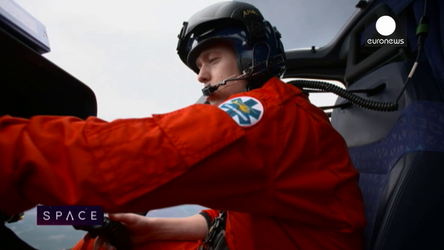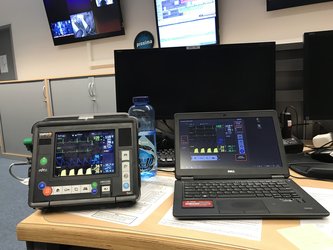Accept all cookies Accept only essential cookies See our Cookie Notice

About ESA
The European Space Agency (ESA) is Europe’s gateway to space. Its mission is to shape the development of Europe’s space capability and ensure that investment in space continues to deliver benefits to the citizens of Europe and the world.
Highlights
ESA - United space in Europe
This is ESA ESA facts Member States & Cooperating States Funding Director General Top management For Member State Delegations European vision European Space Policy ESA & EU Space Councils Responsibility & Sustainability Annual Report Calendar of meetings Corporate newsEstablishments & sites
ESA Headquarters ESA ESTEC ESA ESOC ESA ESRIN ESA EAC ESA ESAC Europe's Spaceport ESA ESEC ESA ECSAT Brussels Office Washington OfficeWorking with ESA
Business with ESA ESA Commercialisation Gateway Law at ESA Careers Cyber resilience at ESA IT at ESA Newsroom Partnerships Merchandising Licence Education Open Space Innovation Platform Integrity and Reporting Administrative Tribunal Health and SafetyMore about ESA
History ESA Historical Archives Exhibitions Publications Art & Culture ESA Merchandise Kids Diversity ESA Brand Centre ESA ChampionsLatest
Space in Member States
Find out more about space activities in our 23 Member States, and understand how ESA works together with their national agencies, institutions and organisations.
Science & Exploration
Exploring our Solar System and unlocking the secrets of the Universe
Go to topicAstronauts
Missions
Juice Euclid Webb Solar Orbiter BepiColombo Gaia ExoMars Cheops Exoplanet missions More missionsActivities
International Space Station Orion service module Gateway Concordia Caves & Pangaea BenefitsLatest
Space Safety
Protecting life and infrastructure on Earth and in orbit
Go to topicAsteroids
Asteroids and Planetary Defence Asteroid danger explained Flyeye telescope: asteroid detection Hera mission: asteroid deflection Near-Earth Object Coordination CentreSpace junk
About space debris Space debris by the numbers Space Environment Report In space refuelling, refurbishing and removingSafety from space
Clean Space ecodesign Zero Debris Technologies Space for Earth Supporting Sustainable DevelopmentApplications
Using space to benefit citizens and meet future challenges on Earth
Go to topicObserving the Earth
Observing the Earth Future EO Copernicus Meteorology Space for our climate Satellite missionsCommercialisation
ESA Commercialisation Gateway Open Space Innovation Platform Business Incubation ESA Space SolutionsEnabling & Support
Making space accessible and developing the technologies for the future
Go to topicBuilding missions
Space Engineering and Technology Test centre Laboratories Concurrent Design Facility Preparing for the future Shaping the Future Discovery and Preparation Advanced Concepts TeamSpace transportation
Space Transportation Ariane Vega Space Rider Future space transportation Boost! Europe's Spaceport Launches from Europe's Spaceport from 2012Latest

Space-connected ambulances improve patient care
Thank you for liking
You have already liked this page, you can only like it once!
Satellites are helping to improve at-home patient care for those living in remote areas of the UK. ESA and the UK Space Agency (UKSA) are working with the UK’s National Health Service (NHS) to trial the Digital Ambulance of the Future project, which enables paramedics to stay connected
Funding of €5.7 million has been provided to the project, which provides advanced cellular and satellite connectivity to ambulance crews. The funding comes from ESA’s 5G/6G Programme, part of the Agency’s Connectivity and Secure Communications directorate, and the UK Space Agency (UKSA).
Developed by UK-based company Excelerate Technology, Digital Ambulance of the Future has been in trials since June 2023 with the NHS Arden and Greater East Midlands Commissioning Support Unit, and the East of England NHS Ambulance Trust.
Four ambulances have been fitted with a special long-range cellular antenna, provided by Excelerate. This connects the ambulances to satellites in low-Earth orbit, operated by OneWeb. The strongest signal is automatically selected, ensuring connection is maintained whilst the vehicle and antenna move – something that traditional geostationary satellite communication lacks, but vital for healthcare.
With this technology, paramedics have been able to maintain connectivity through a combination of 4G, 5G and satellite technologies, even while travelling through remote areas with poor mobile coverage. Connection problems previously meant ambulance crews had issues accessing patient data and connecting with colleagues and experts, potentially resulting in unnecessary hospital admissions for patients.
Keeping paramedics connected means more patients can be treated in their own homes, where appropriate, rather than potentially waiting for long periods in hospital for triage and treatment. The goal of the project is that all ambulances are ‘always connected’.
A significant benefit is the opportunity to roll out telemedicine – in which ambulances, or even patients’ homes, could function as remote consultation rooms, as crews have access to a senior clinician to support the diagnosis and delivery of patient care. Such an approach would improve patient care, increase efficiency and save money, time and resources.
The current trial has been extended, with the hope that it will become permanent, with the potential for further applications on the horizon, improving patient care wherever they may be, supporting healthcare professionals and creating a more efficient and effective all round healthcare service.
-
CREDIT
Excelerate Technology -
LICENCE
ESA Standard Licence

Satcom 5G-enabled ambulance demonstration

ESA Euronews: EGNOS - navigation and security

Ultrasound patient monitoring using Tempus Pro

Tempus Pro transmits data via satellite















 Germany
Germany
 Austria
Austria
 Belgium
Belgium
 Denmark
Denmark
 Spain
Spain
 Estonia
Estonia
 Finland
Finland
 France
France
 Greece
Greece
 Hungary
Hungary
 Ireland
Ireland
 Italy
Italy
 Luxembourg
Luxembourg
 Norway
Norway
 The Netherlands
The Netherlands
 Poland
Poland
 Portugal
Portugal
 Czechia
Czechia
 Romania
Romania
 United Kingdom
United Kingdom
 Slovenia
Slovenia
 Sweden
Sweden
 Switzerland
Switzerland

























